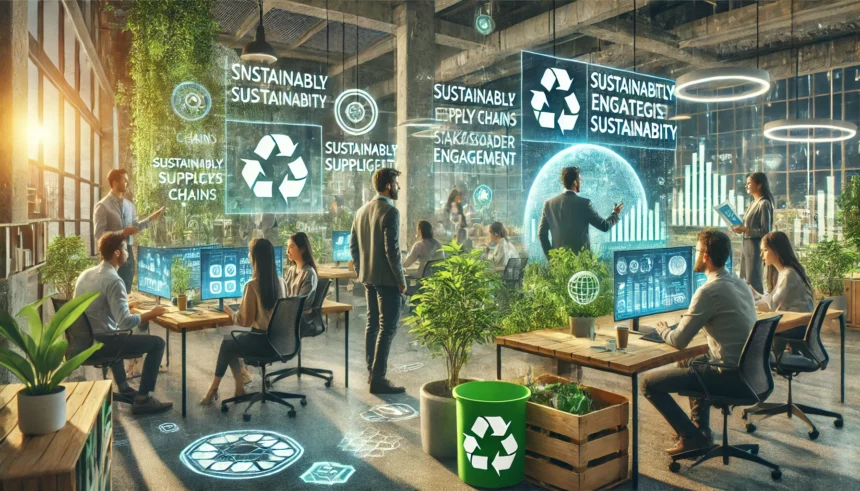Incorporating sustainability into a business strategy isn’t just a bonus anymore; it’s essential. For startups, this mix can offer a unique edge, spark creativity, and ensure long-term success. As customers become more eco-conscious, companies that prioritize sustainability often find it easier to keep customers, boost their brand, and save money. Here are some practical tips for startups to effectively blend business and sustainability.
Understanding Business and Sustainability
Sustainability in business means running operations in a way that doesn’t drain natural resources and supports long-term environmental health. This includes:
- Reducing waste
- Cutting down carbon emissions
- Adopting eco-friendly practices
For startups, this might mean rethinking traditional business models to align with environmental, social, and economic goals.
Creating a Sustainable Business Model
A sustainable business model benefits everyone – the company, the environment, and society. Startups should:
- Develop products or services that solve environmental problems or use eco-friendly methods.
- Examples: Making biodegradable packaging or offering carbon-reducing services to stand out as a leader in sustainability.
Sustainable Product Design
Designing sustainable products involves thinking about the entire lifecycle, from sourcing raw materials to disposal. Startups should:
- Use renewable, recyclable materials with a low environmental impact.
- Focus on durability and efficiency to reduce the need for frequent replacements and minimize waste.
Efficient Resource Management
Efficient use of resources is key to sustainability. Startups should aim to:
- Reduce their use of energy, water, and raw materials.
- Implement energy-efficient technologies, recycling programs, and water-saving measures.
- Consider renewable energy sources, like solar or wind, for their energy needs.
Sustainable Supply Chain
A sustainable supply chain ensures every step of the production process meets environmental and ethical standards. Startups should:
- Partner with suppliers committed to sustainability.
- Ensure fair labor practices, reduce transportation emissions, and use eco-friendly packaging.
- Maintain transparency to build customer trust.
Embracing the Circular Economy
The circular economy focuses on reusing, repairing, and recycling materials to create a closed-loop system that minimizes waste. Startups can:
- Design products for easy disassembly and recycling.
- Offer take-back programs or refurbishment services to extend product life and reduce waste.
Engaging Stakeholders
Engaging all stakeholders – employees, customers, investors, and the community – is crucial. Startups should:
- Communicate their sustainability goals and achievements clearly.
- Encourage feedback to improve operations.
- Foster a sustainable culture within the organization to inspire eco-friendly practices and innovations.
Measuring and Reporting Sustainable Performance
To keep improving, startups should measure and report their sustainability performance by:
- Setting clear sustainability goals and tracking progress.
- Evaluating the impact of their sustainability initiatives using metrics.
- Regularly reporting through sustainability reports or certifications to demonstrate their commitment and build credibility.
Leveraging Technology and Innovation
Technology is vital for achieving sustainability. Startups should:
- Use tech advancements to develop new solutions for environmental challenges.
- Examples: Utilize data analytics to optimize resource use, create apps promoting sustainable behavior, or invest in green technology R&D.
Conclusion
Integrating sustainability into business processes is a crucial shift towards a more responsible and resilient economy. This integration offers startups numerous benefits, from cost savings and innovation to enhanced brand image and customer loyalty. By adopting sustainable business models, creating eco-friendly products, managing resources efficiently, and engaging stakeholders, startups can lead in sustainability.
Starting with sustainability helps startups make a positive impact on the environment and society while ensuring long-term financial success. As we face environmental challenges, the future belongs to companies that prioritize sustainability and drive real change.
















